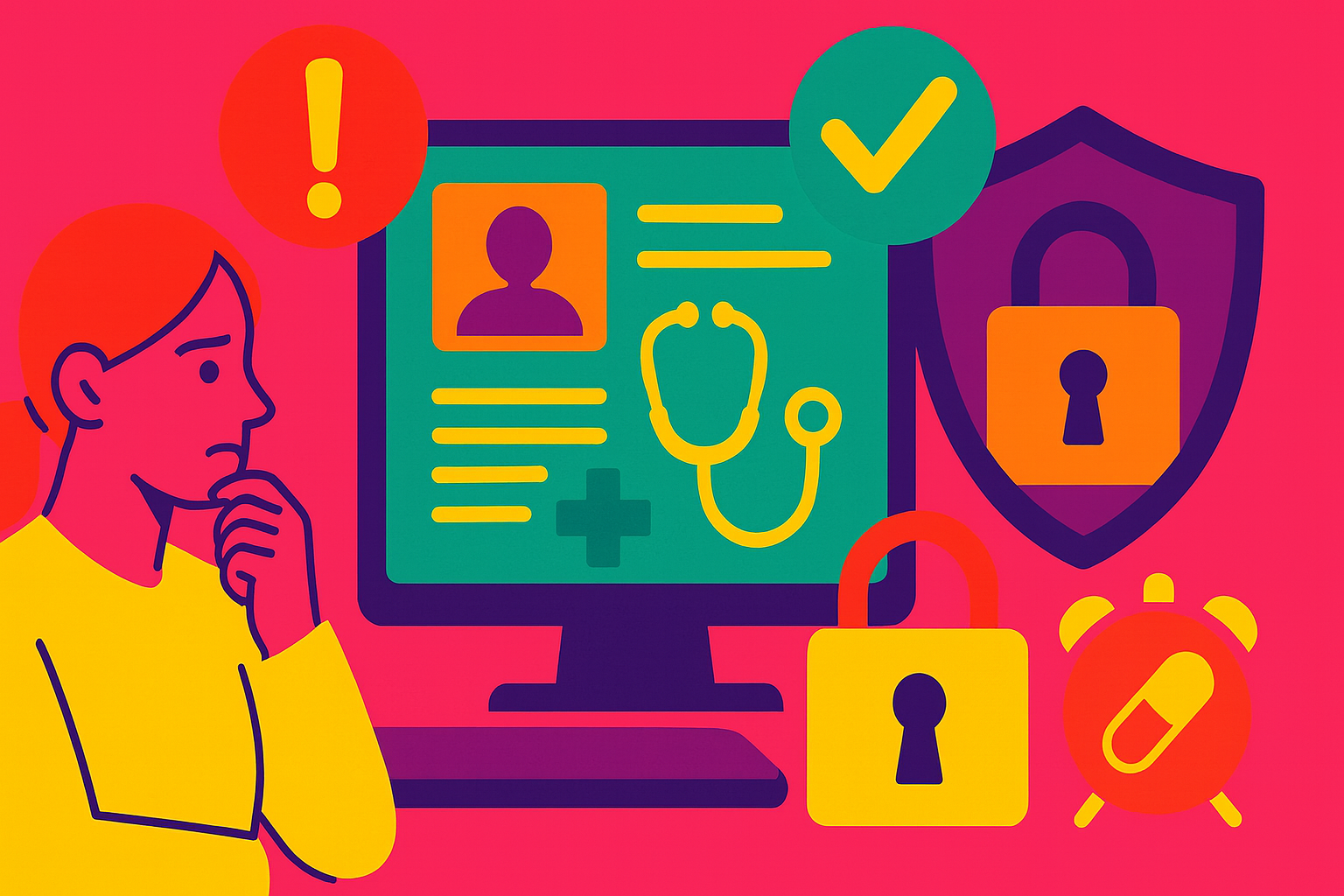For more than seven years, Switzerland has been aiming to bring healthcare data into the digital age with the electronic patient record (EPR). The aim was to make it easier for patients to access their medical records and to improve the exchange of information between doctors, hospitals and pharmacies. The reality is sobering: At the end of June 2025, only around 117,000 dossiers had been opened for a population of just over nine million.
The law came into force in 2017, but the project is making little progress. The main problems are a lack of commitment and incentives: doctors are neither obliged to participate nor are they remunerated for the additional work involved. Many practices therefore see no benefit. Added to this is the federal system with 26 cantons, different hospital structures and fragmented standards, which makes coordination even more difficult
“The EPD was well-intentioned, but poorly implemented,” criticizes Stefan Spycher, President of the Swiss Health Promotion Foundation, in an article in the Republik. “Without clear rules and incentives, it remains a paper tiger.”
Data protection: shield or brake?
Data protection is a top priority in Switzerland – and that makes sense. Nevertheless, some see it as a pretext for delaying fundamental reforms. Critical voices point to studies by the Swiss Health Observatory(Obsan reports) and international comparisons: Countries such as Denmark and Estonia prove that data security and user-friendliness are compatible.
The EPR is currently not very attractive for citizens. If you want to open a dossier, you have to register with one of the six parent communities and one community and personally identify yourself to a certified body. A time-consuming process that puts many people off. The user interface is also not considered to be very intuitive.
Acceptance remains low – trust and convenience are key
According to the Swiss eHealth Barometer 2025, acceptance of the EPR in Switzerland remains subdued. Although a majority of 55% consider the EPR to be a good thing, 35% are undecided and only 38% feel confident about using it. Data protection concerns remain a key obstacle: 56% fear the misuse of sensitive data, while 57% trust the data protection surrounding the EPR.
Respondents see the greatest benefit in the availability of important information in an emergency (82%) and easier access to treatment data (71%). The willingness to store essential data such as allergies or vaccinations is high, but complicated processes and a lack of integration into day-to-day practice are slowing down use. Practical additional functions such as reminders for prescriptions (87%) and vaccinations (86%), which could make the EPR more attractive, are particularly in demand.
Germany relies on opt-out and pressure
Germany also got off to a hesitant start in 2021 with its electronic patient file (ePA). But Berlin drew the consequences: With the Digital Act 2024, the system became mandatory, albeit according to the opt-out principle. From 2025, every person with statutory health insurance will automatically receive a file unless they object. Doctors must enter data and receive remuneration for doing so.
“The opt-out system is a game changer,” explains Jens Baas, CEO of Techniker Krankenkasse in apotheke adhoc. By the end of 2025, over 80 percent of those insured should actively access their ePA. Health insurance companies are investing heavily in user-friendly apps and information campaigns. The aim is to offer policyholders real benefits – such as clear vaccination schedules, laboratory values or medication lists. Initial pilot projects show this: The easier it is to use, the greater the acceptance.
Direct comparison: Switzerland vs. Germany
| Factor | Switzerland (EPD) | Germany (ePA) |
|---|---|---|
| Start | 2017 | 2021 |
| Utilization | < 5% of the population | Opt-out from 2025 |
| Participation | Voluntary | Automatic (opt-out) |
| Obligation for doctors | No | Yes, from 2025 |
| Remuneration of doctors | None | Yes |
| Access | Complex, on site | Simply via the health insurance app |
Where is Switzerland heading?
The pandemic has shown how important digital networking of the healthcare system would be. However, as long as there are no binding requirements, no integration into practice software and no financial incentives, the EPR will remain a niche project. Many experts are therefore calling for an opt-out regulation based on the German model.
In the end, it’s not just about technology, but about trust, clear processes and the political will to finally pick up the pace. The question is: will Switzerland wait until the backlog becomes unassailable or will it seize the opportunity to set off?
Binci Heeb
Read also: Electronic patient file: Basel-Stadt tries again





